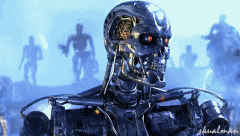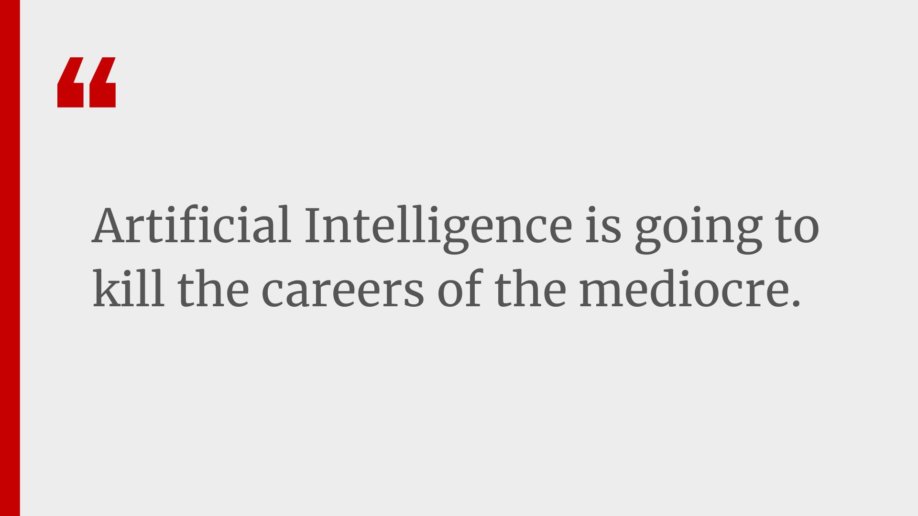» Read Back-Issues of My Cure Your ‘Case of the Mondays’ Newsletter
Over the last couple of months, ChatGPT has taken the world by storm. If you’re unfamiliar with ChatGPT, here’s how ChatGPT answered the question, “What is ChatGPT?” (yeah, we’re getting meta pretty early today)
ChatGPT is a conversational language model developed by OpenAI. It uses deep learning techniques to generate human-like text responses to questions and prompts. The model was trained on a large corpus of text from the internet, and it has been fine-tuned to generate coherent and relevant responses in various conversational contexts.
If you haven’t tested it out yet, here’s the direct link → https://chat.openai.com
In short, ChatGPT isn’t your daddy’s Google.
ChatGPT isn’t simply a better search engine with better algorithms to help you find the best pizza joint in your neighborhood in less clicks.
ChatGPT is THE inflection point of A.I. going mainstream. It can write entire essays, draft marketing copy, design entire online learning courses, create entire social media campaigns, and literally write complex code to create apps. And this barely scratches the surface of what’s it’s capable of in mere minutes.
Yup…Skynet has become self-aware.

While I don’t believe ChatGPT is leading us into a post-apocalyptic wasteland where machines rule the world and John Connor is our only hope for survival, I do think ChatGPT raises a very important (and potentially terrifying) question:
Will our creative jobs be replaced by A.I.?
For years artificial intelligence has slowly crept into our lives and helped us to simplify repetitive tasks through automation. But ChatGPT is a completely different ballgame in that it can take on much more complex – and dare I say it – CREATIVE tasks. We no longer bat an eyelash when we use technology to replace humans for repetitive, data-driven tasks. But now that A.I. is coming for the artists & creatives via creating vivid, lifelike self-portraits, writing code for us, writing entire essays, and flooding the internet at an exponential pace with ideas generated by machines…
Are we in trouble?I’m no technologist, nor do I pretend to follow and keep up with A.I. on a regular basis. But I’m confident in my answer:Yes. And No.To be as blunt as possible, I believe that ChatGPT (and the many A.I. competitors coming our way soon) poses a dire threat to a specific subset of artists, writers, thinkers, coders, knowledge workers, and creatives.
Artificial Intelligence is going to kill the careers of the mediocre.
If you’ve read any essays or social media copy or lesson plans or any of the myriad of things ChatGPT can create, you’ll see very quickly that’s it’s astonishingly good.
But if you read between the lines of just about anything ChatGPT spits out, you’ll also notice very quickly that it’s not great. Sometimes it’s repetitive. It’s formal and not colloquial. The work it creates is absolutely adequate and serves many purposes for many different types of inquiries, but ChatGPT lacks something incredibly important:
Nuance.
When you first begin any creative career, what often separates those who climb the ladder from those who fail is often lack of hard skills, inability to collaborate, lack of consistency & reliability, poor attitude, inability to learn on the job, etc etc etc. Basically there’s a pretty obvious gap between those who get it and those who don’t.
But when you reach a certain point in your career, the difference between those who are great, those who are amazing, and those at the very top of their fields comes down to nuance.
In sports for example, the core differences between any given player in the NBA and LeBron James are actually minimal. Anyone who’s a starter in the NBA belongs to a tiny percentage of athletes amazing enough to function at an elite level. Yet LeBron James is playing the same game on an incomprehensible level compared to everyone else considered the best in the world at playing basketball.
The difference is nuance.
If you took 99% of the action films & TV shows across all streaming platforms and compared them to Top Gun: Maverick, there are few obvious differences. Yet Maverick is arguably one of the best action films ever made (and if there’s any justice Eddie Hamilton will win the Oscar this year!) while just about everything else can be lumped together into a single genre.
Eddie Hamilton uses the same editorial tools as all the other editors out there. His day-to-day is almost identical to every other action editor out there. He probably gets similar coverage and camera setups as compared to most of the other big budget studio action films in his budget range. He has access to the same sound fx, the same music libraries, and the same monitors, desk chairs, and plug-in packages. Yet there’s something so incredibly different, more powerful, and just downright better about Maverick than the thousands of other action films in the world today.
The difference is nuance.
The difference is in the frame-by-frame decisions that Eddie Hamilton makes based on his intuition. And I don’t believe in our lifetimes we will see any form of software or A.I. that can replicate the level of nuance & intuition that we have as human beings.
If the creative work you do is mediocre, formulaic, follows a template, and is easy to replicate, I’d be very worried about A.I doing your job very soon.
But if you’re willing to make the effort to really hone & refine your creative abilities such that there’s just something about your work that makes it yours, that makes it unique, and that has that certain quality that nobody can put their fingers on…then your job is probably safe for the foreseeable future.
So this begs the question, {{ subscriber.first_name }}…
What steps can you take to improve your craft and create nuanced work that is memorable, unique, and difficult to replicate?
I’d love to know your thoughts. I read every email I receive!
Be well.
Zack Arnold
Creator, Optimize Yourself
P.S. If you want to get a sense of the how important nuance is, below is a cold outreach message that ChatGPT drafted to Maverick editor Eddie Hamilton in about 30 seconds. If your cold outreach messages sound like this one…it’s time to discuss the importance of nuance.
—
I hope this email finds you well. My name is [Your Name], and I am a huge fan of your work as an editor. I was particularly impressed by your work on Top Gun: Maverick, and I am reaching out to inquire about any job opportunities that may be available on your team.
I am a highly motivated and detail-oriented editor with [Number of years] years of experience in the film and television industry. I have a deep passion for storytelling and a strong understanding of the technical aspects of editing. I have honed my skills through working on [a few projects you have worked on and the role you played in each of them].
I would love the opportunity to bring my skills and passion to the Top Gun: Maverick team and contribute to the success of the project. I am confident that my experience, combined with my enthusiasm for your work, would make me a valuable addition to your team.
Would it be possible to schedule a call or meeting to discuss this opportunity further? I would be more than happy to provide additional information and references upon request.
Thank you for considering my request. I look forward to the opportunity to discuss my application further.
Best regards, [Your Name]
—

